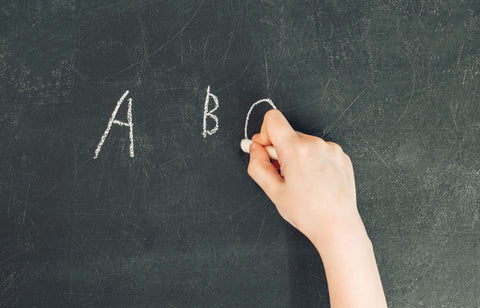
'Developmental Coordination Disorder (DCD), also known as Dyspraxia in the UK & Ireland, is a common disorder affecting fine and/or gross motor coordination in children & adults' - Dyspraxia/ DCD Ireland
"Praxis enables us to make adaptive responses to our world, both physical and social" - this quote is taken from a webinar with Teresa May Benson, Occupational Therapist and it definitely helps summarise the complexity of praxis. It is how children learn new skills and it requires accurate information from all sensory systems of the body, and mature body awareness, perception of movement, sequencing, bilateral integration and awareness of space. It is the ability by which we figure out how we use our hands and body in skilled tasks like playing with toys, climbing trees, running on sand, using a pencil, building a structure with lego, using a fork or cycling our bike etc.

Praxis involves many sub processes including
Ideation - Knowing what to do.
Motor Planning - Knowing how to do it.
Execution - Carrying it out in a smooth process.
The ability to organise and carry out a sequence of unfamiliar tasks is involved in many fine motor and gross motor activities.
Repetition is key especially when learning discrete or specific skills such as tying laces or fastening the buttons on their shirt. This is a skill that can be done the same way each time so learning through repetition can support independence but that skill may be isolated to that task.
In order to develop a child's praxis skills, developing isolated skills through repetition in conjunction to exposing children to different environments and activities that require adaptive responses will help to develop a child's praxis skills.
It's also really helpful to encourage kids to label what they are doing so ask lots of questions - 'what were you doing there?' ' Were you hopping or jumping?'


How does this effect writing? Motor planning is important for developing motor memories so we can recall quickly how to do things e.g. how a letter is formed. This automaticity with writing allows us to write on a subconscious level so we can devote our cognitive power to presentation etc.

A child's motor planning ability is challenged in the classroom each time a child is presented with a variation of a familiar motor task or with a new task. With this in mind,it is pretty obvious why children who have motor planning difficulties can be exhausted by the end of the school-day, need their movement or sensory breaks & benefit from visual breakdowns & reminders for the sequence of steps in new tasks.
When learning a skill like cutting with a scissors; children process & integrate a variety of sensory information so that they can plan & sequence each snip/cut in order to complete the tasks as accurate as possible. When teaching a skill like cutting, it is important that children have clever prompts and visuals to support their learning. When creating my motor skills program (Octobox) for school-aged kids, I decided to accompany each activity with an engaging demonstration video so I could show kids how to complete the activity in the right way but also break down the skill into manageable steps. Grading activities is an OT's speciality! Learn more about Octobox here.
Children with planning and sequencing difficulties can struggle with completing these tasks accurately and in a timely manner as they may not know how to start or have a strategy for finishing the task. This can result in them rushing through the work or avoiding the task due to feelings of anxiety and frustration.
Developmentally, children learn how to motor plan through play where they explore the use of many objects, imitate others, complete tasks with lots of variations & develop creative ideas for different actions. Motor planning and sequencing continues to develop as children get older & they are required to sequence several motor actions in new skills (e.g. cycling, driving, typing) or follow several directions in an unfamiliar task.

Motor planning difficulties can make initiating work very challenging.
The child may seem clumsy, accident prone and uncoordinated in their movements.
They may struggle to organise themselves or their belongings. So make it easier for kids by colour coding, limiting the amount of items and having designated places for things.
Tasks will often be carried out slowly without a clear plan e.g. organising their room, locker, school-bag, writing an essay, studying. Organisational skills can be taught, you definitely need patience & a very clear plan when teaching it to kids.
They may find it difficult to follow instructions especially multi-step instructions that are delivered in a fast pace. That's why visuals are so important!
Some kids may avoid P.E or team sports due to feeling uncoordinated. They may prefer less competitive exercise & sports. Rock-climbing can be a great one!
Learning new skills can be challenging such as dressing, letter formations etc. However, with the right support & scaffolding - kid's can do great!
Handwriting can be a challenge where it might be illegible, poorly presented & tiring. Assistive technology can be a great option as kids get older if writing has become a barrier to their academic progress.